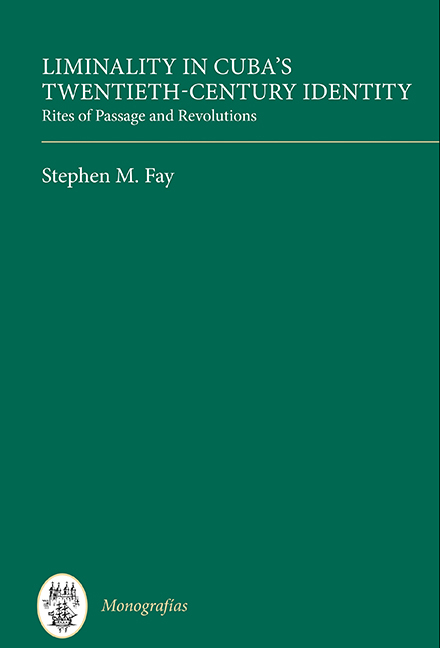Chapter 3 - 1933: Un dérèglement de tous les sens
from PART I - 1923–1933
Published online by Cambridge University Press: 14 September 2019
Summary
We now come to one of the most volatile periods of twentieth-century Cuban history: the island's first revolution. In this chapter we will return to the notion of liminality, but from a very different perspective. We have examined the cases put forward by Roig de Leuchsenring and Martínez Villena, Abela and Mella for historical turning points and the introspection they stimulate as moments of temporary catharsis to right wrongs, cure ills and save the collective soul with a leap backward to a prelapsarian past, or a vital and heroic leap forward towards social (and socialist) perfection. In these approaches we have seen a van Gennep-type approach to liminality, and have heard the teleological tones of the venceremos contribution to the national narrative. We have contrasted these approaches with Ortiz, Ichaso and Mañach's arguments for the congenital ambivalence and flux they perceived at the heart of Cuban identity and the unresolved luchita they saw running through the national narrative. In these approaches we have seen parallels with Turner's portrayal of the limen as a potentially beneficial threshold upon which societies can achieve greater integrity by welcoming the dissolution and innovative re-articulation of the schemata of everyday life. We will now turn aside from both approaches to ‘demythologize’ the limen and ‘restore to the term some of its surreptitiously aberrant quality’ (Giles 2000: 43). We will first uncover the epitome of this aberrant liminality in the Isla de Pinos's prison (the Presidio Modelo), a notorious penal facility on Cuba's territorial edge. We will see physical and metaphysical marginality coming together and present evidence of what Turner (citing Rimbaud) calls ‘un dérèglement ordonnée [sic] de tous les sens’ (1974: 264). Critically, however, we will argue that this liminal riot of the senses was not ordered, but deranged, leading not to a positive recalibration of identity, but to the dissolution of all social structures and a nefarious descent into savagery. In further contradistinction to the anthropologists, this chapter will suggest that, unlike in the ritual transitions they describe, the liminal dérèglement of the early 1930s in Cuba was neither spatially nor temporally restricted. In the second half of the chapter we will see aberrant liminality spreading from the spatial margins towards the core of the Cuban capital.
- Type
- Chapter
- Information
- Liminality in Cuba's Twentieth-Century IdentityRites of Passage and Revolutions, pp. 75 - 100Publisher: Boydell & BrewerPrint publication year: 2019



